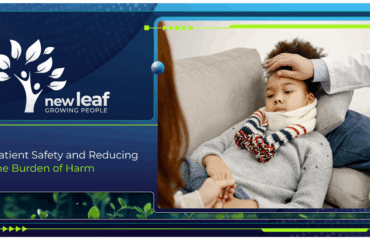
The workplace is changing rapidly — think multigenerational workforces, massive technological changes, and work-from-home or hybrid work styles. These shifts have caused employers to rethink their priorities when making new hires.
This means that although hard skills — the technical capabilities that can be quantified and measured — may push a CV to the top of the pile, it will be the applicant’s soft skills that get them the job.
So, what are employers looking for? What are the most marketable soft skills? And why are they important? We take a closer look at why and how employees can boost their learning and development and leverage soft skills in the workplace to secure their future.
Soft skills you have to learn and why
While a person’s technical capabilities will get them a foot in the door, what they need to really soar is a set of psychosocial skills that are harder to measure but critical to success. These are the most in-demand soft skills, with examples of the most important subsets of skills employees need to develop them.
Communication
Communication is more than just talking. To master all the elements of effective communication, these aspects must be mastered as well:
- Practise active listening — listening, understanding, responding, and reflecting on what’s being said
- Ask the right questions and tailor your message according to your audience
- Speak with a positive tone
- Show positive and open body language
- Understand non-verbal clues
Effective communication in the workplace is essential for resolving conflicts, building trust, and ensuring that customers and co-workers feel heard. When an employee can effortlessly yet respectfully express themselves and listen to others, it improves relationships and creates the right conditions for sharing creative ideas.
Time management
Most jobs require employees to multitask and chase overlapping deadlines while managing numerous interruptions. This makes it hard to stay on track. Effective time management means employees have to:
- Set goals
- Get organised
- Prioritise daily/weekly/monthly tasks
- Know how to delegate
- Learn how to say no
- Break tasks down into: do, defer, delegate, and delete
Time management done right helps everyone work smarter, not harder, and they’ll get more done in less time. When employees are more productive and efficient, it increases their chances of career advancement. It’s also an important part of managing stress in the workplace and preventing burnout.
Problem-solving
Being able to think outside the box, analyse issues logically, and find solutions for complex and unexpected situations all form part of the highly sought-after skill of problem-solving. Here’s what it takes:
- Critically analyse the problem and its cause
- Think creatively and brainstorm innovative solutions
- Develop a number of alternative solutions
- Make decisions confidently based on evidence
- Develop a plan of how the solution will be implemented
Employers increasingly rely on employees who can solve problems independently, especially when time and resources are limited. Problem-solving helps employees prioritise tasks, foresee risks, and make quick decisions about how to manage them.
Critical thinking
Critical thinking is a form of emotional intelligence; it’s the ability to analyse facts objectively and form a judgment. Here’s what critical thinking is all about:
- Be open-minded and cognitively flexible
- Use information to come to a logical conclusion
- Identify a problem and what’s influencing that problem
- Be able to ‘think about your own thinking’ (metacognition)
- Identify cognitive biases in yourself and others
Being able to think critically helps employees work independently and solve problems on the fly. It helps them analyse different viewpoints and come up with the best solution for complex problems. They can weigh the consequences of different actions before acting and think for themselves rather than blindly adopting others’ opinions.
Teamwork
Today most of our jobs involve interacting with others, so being able to perform well within a team is key to attaining growth. Teamwork demands that employees:
- Communicate in a clear, efficient way
- Can work cooperatively with others
- Lead, motivate, influence, and persuade others to achieve goals
- Are willing to explore new approaches
- Are flexible and adaptable to group decision-making
A team environment allows individuals to bring diverse perspectives to problem-solving, which in turn increases the chance of finding effective solutions. When the team works as a unit, members have the opportunity to learn from each other while building strong work relationships. Good teamwork improves productivity and allows for smarter risk-taking.
Emotional intelligence
Emotional intelligence, also known as emotional quotient (EQ), is the ability to recognise, interpret, and regulate one’s own emotions and understand those of others. While some people are naturally more adept at certain aspects, EQ can be learned and enhanced by developing these skills:
- Be more self-aware (recognise and understand your emotions)
- Learn to regulate and manage your emotions
- Interact well and easily with others
- Have empathy (understand others’ feelings and see things from their perspective)
- Be motivated by things beyond external rewards (e.g., money, recognition, or acclaim)
When people are self-aware, they recognise their personal strengths and limitations, learn from their interactions with others, and are open to new information and experiences. Self-regulating one’s emotions makes a person more flexible and adaptive to change and better at managing conflict. It also improves social skills and understanding of different cultures and communities.
Leadership
Leadership — of ourselves and others — is one of the most coveted soft skills in today’s workplace. It refers to the strengths and abilities employees demonstrate when overseeing processes, guiding initiatives, and steering their co-workers toward achieving their and the company’s goals. They’ll need to be able to:
- Keep open lines of communication with co-workers
- Avoid and resolve conflicts
- Delegate tasks, prioritise commitments, and set attainable goals
- Bring positivity by showing care, respect, diplomacy, and empathy
- Be confident in their decision-making
- Show flexibility and quickly adapt to changing work conditions
Successful leaders are able to transform organisations by creating efficiencies and engaging their employees and teams to deliver better results. They nurture a culture of innovation and can navigate complex organisational challenges with confidence and resilience. They are skilled at influencing others to follow their lead rather than relying on hierarchy or power.
Improve your employees’ soft skills?
New Leaf Technologies offers customisable courses for employers, employees, students, and entrepreneurs to develop the most in-demand soft skills, from communication and time management to leadership and creative problem-solving.
Offering the latest tips, tricks, and industry insider’s secrets to developing in-demand soft skills, each module is designed to boost career development in ways that matter to modern employers. Find out how you can learn soft skills.




